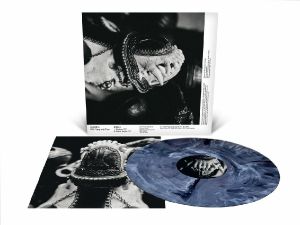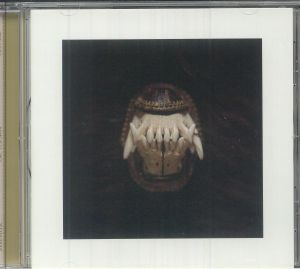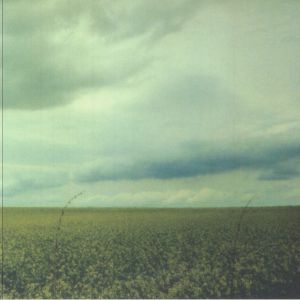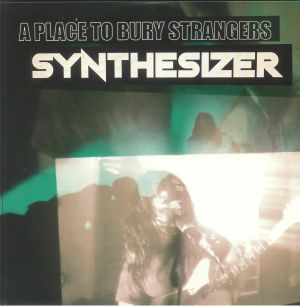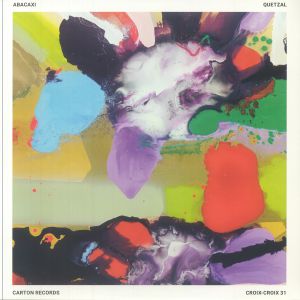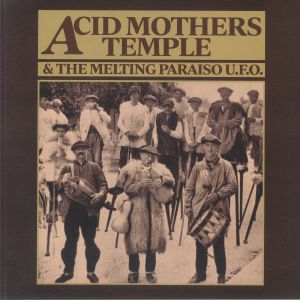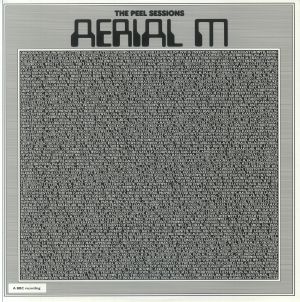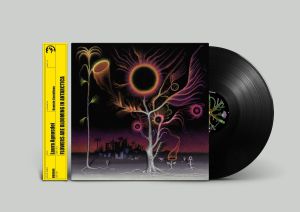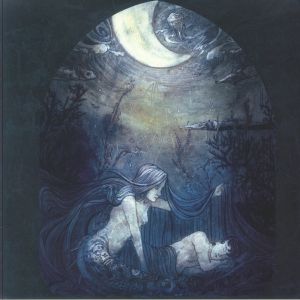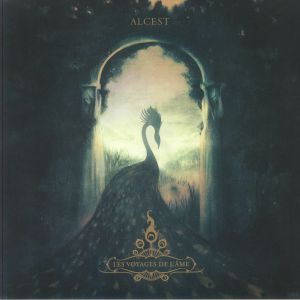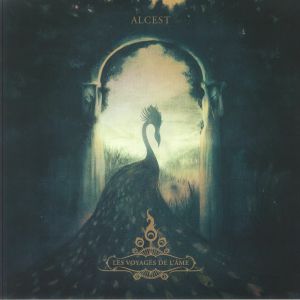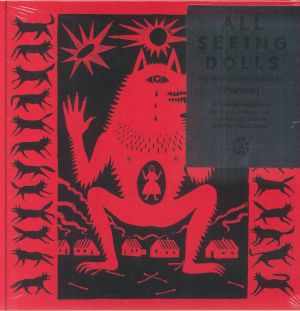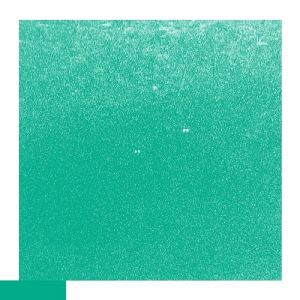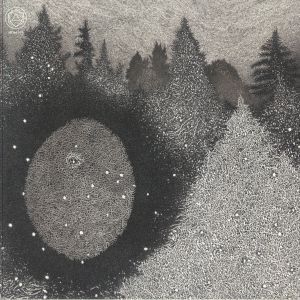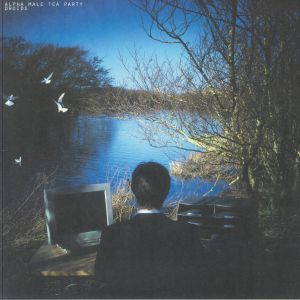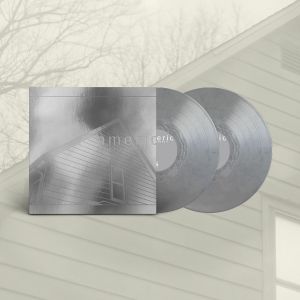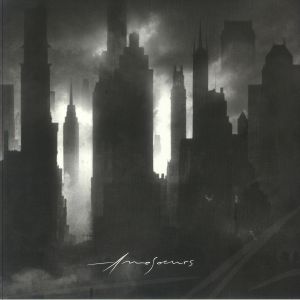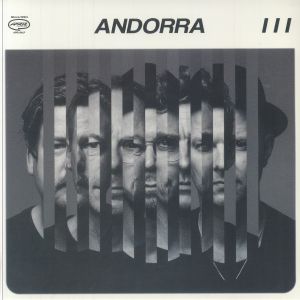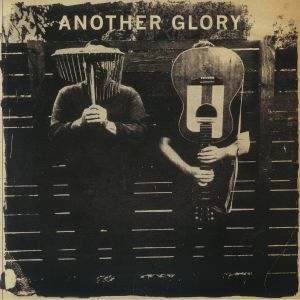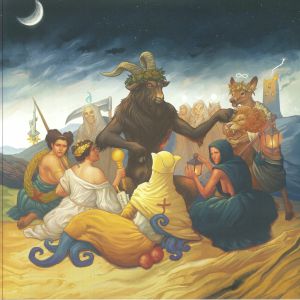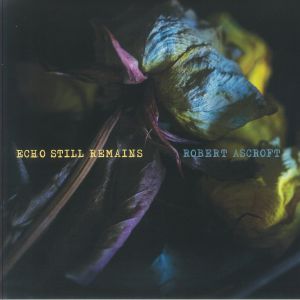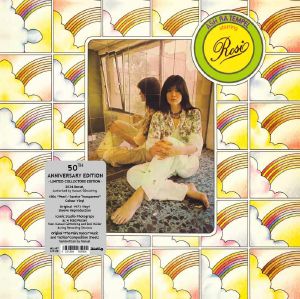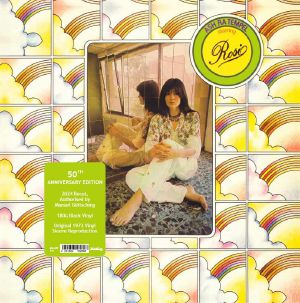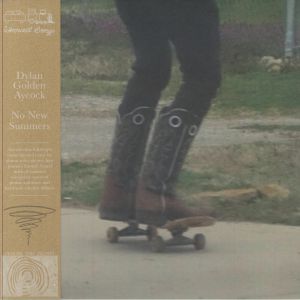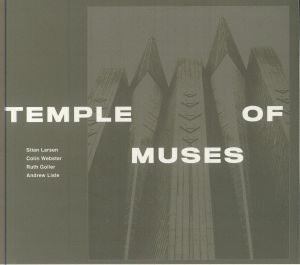Filter
Stock
Artist
Featured
Release Title
Price
Back catalogue: Post Rock/Experimental
Juno's full catalogue of Post Rock/Experimental
Singles
Review: A reissue of 2022's covers single, Alvarius B's 'Karaoke' gets a second run via Unrock. A titan of the US underground singer-songwriter scene, Alan Bishop is best known as a co-founder of Sun City Girls and owner of the labels Abduction and Sublime Frequencies. His less-known alias Alvarius B has nonetheless seen an extended panhandle of releases at least since 1994, and plays host to a string of 'characters' and sub-pseudonyms. One such 'charakter', as he calls them, is Karaoke, whose forte is covers of noir cinematic rock classics. Here we've got two dark rundowns; on the A, a dark rundown of Ennie Morricone's 'Solo Nostalgia' from the film Comandamenti per un Gangster, and on the B, a version of Indonesia's finest Koes Plus' 'Tiba-Tiba Ku Menangis', whom Bishop had already interpreted as part of the band Koes Barat. Both detail Bishop's talent as a rarely-performed alter-ego, a cosmopolite solo-entertainer.
… Read more in stock $15.21
With Fang & Claw (limited 1-sided "bleach" marbled vinyl 12")
Cat: RR 75631. Rel: 27 Mar 25
in stock $19.63
in stock $9.94
23:03 (remastered) (limited "coke bottle" clear vinyl 12"+ insert)
Cat: LPBRASS 15C. Rel: 20 Dec 24
in stock $23.78
Alben
Synthesizer (LP + synthesizer + MP3 download code)
Cat: LPDED 028. Rel: 24 Oct 24
Review: Synthesiser is the third release from New York post-punk legends A Place To Bury Strangers on their own label, Dedstrange. After spending the early part of their existence releasing on labels such as Mute and Dead Oceans, seeing them settle into the saddle on their own label and thrive is encouraging to see. Afterall, it suits frontman Oliver Ackermann as he's had an indelible impact on the New York DIY scene after more than 20 years doing top level stuff. He's been steering indie record labels, running DIY spaces, and has his own pedal manufacturing company. Part of the joy of Synthesizer is that it's a feast for the ears thanks to the galactic trip it feels you're on with the custom effect-laden instrumentation and vocals. The avant-gade and experimental noise that they embrace comes from a collaborative and spontaneous approach to writing. Unlike the band's previous album, where Ackermann wrote everything on there, this is Ackermann with John and Sandra Fedowitz fully in-tow and it's about as far from a Pro Tools plug-in operation as you can imagine. This is a hand-wired masterpiece with some explosive and, at times, elegiac moods to immerse in. This is the music you wish New Order were making.
… Read more! low stock $38.70
in stock $15.21
Synthesizer (limited transluscent luminous vinyl LP + synthesizer + MP3 download code (indie exclusive))
Cat: DED 028LE. Rel: 24 Oct 24
Review: A Place to Bury Strangers' seventh album, Synthesizer, is a celebration of spontaneous and natural sounds and features a new lineup with John and Sandra Fedowitz. Frontman Oliver Ackermann describes the album as chaotic yet human, pushing the limits of gear to create an "epic sound journey." Tracks like 'Fear of Transformation' deliver a snarling gothic techno-punk experience, while 'Have You Ever Been in Love' offers hypnotic, tribal rhythms. Recorded in their Queens studio, Synthesizer is one of the band's most live-sounding records, capturing the raw energy of their performances. The lead single, 'Disgust,' epitomises this with its open strings and high-pitched guitar cry. Ackermann's playful approach and dedication to the DIY ethos shine throughout, echoing the collaborative spirit of his Death By Audio venue. In Synthesizer, A Place to Bury Strangers melds extreme noise with catchy hooks, creating a record that is both wild and beautiful inside the experimental rock genre.
… Read more in stock $45.07
in stock $17.97
in stock $22.80
Review: Raw post-punk trio Abdomen trade in the heavier end of the genre unafraid to douse distortion and fuzz onto everything and create music so exciting it would be hard not to want to throw yourself into a circle put for, 'Damage Tool' is a breathtaking way to get things started and 'Numbers' makes Fontaines DC sound like Boyzone. They are capable of slowing down - 'Dazed' has been slowed into a hypnotic Spacemen 3-esque psych/shoegaze jam. The band are relative newcomers and not widely known... yet. But this is going to be one of those albums you'll be kicking yourself for not having a first pressing of. Abdomen is only going to get bigger and it will give the Tapetown studio in Aarhus, Denmark - where they recorded this - more bragging rights for being among the coolest alternative music spaces in Europe.
… Read more in stock $24.89
in stock $25.43
Mantra Of Love (remastered) (limited "bone" cream vinyl LP)
Cat: REPOSELP 138. Rel: 11 Nov 24
Review: Riot Season's vinyl reissue campaign brings new life to Acid Mothers Temple's 2004 album Mantra of Love. Makoto Kawabata and the band deliver an intense journey where layers of heavy white noise are met by cosmic effects and powerful guitar solos in a fearless fusion of psych-rock and experimental sounds. The vinyl comes in a limited edition cream colour and includes carefully restored archival photos held in Acid Mothers Temple's Osaka vaults. With fresh remastering by James Plotkin, this release revives a standout in AMT's catalogue for devoted fans and new listeners alike.
… Read more in stock $37.88
in stock $22.67
Flowers Are Blooming In Antarctica (gatefold LP with obi-strip)
Cat: MDR 86. Rel: 20 Mar 25
in stock $27.10
Strange Loops (LP + MP3 download code)
Cat: LME 016LP. Rel: 24 Oct 24
in stock $21.85
in stock $37.60
Ecailles De Lune ('arctic pearl' vinyl LP + booklet)
Cat: PROLPC 1061. Rel: 30 Jan 25
in stock $30.70
Les Voyages De L'ame (clear vinyl LP (indie exclusive) + poster)
Cat: PRO 122LPC1. Rel: 21 Nov 24
in stock $36.43
Spiritual Instinct (reissue) (limited "solid green" vinyl LP)
Cat: NBR 53288G. Rel: 05 Dec 24
Review: With the latest release of 2024's triumphant Les Chants de l'Aurore, label Nuclear Blast have opted to reissue the 2019 predecessor project from French post-black metal/blackgaze pioneers Alcest. Spiritual Instinct initially marked only the second time the band's live bassist Indria Saray had performed on record following on from his in-studio inclusion on 2016's Kodama, while musically, the material is noted for continuing to restore some of the previously eschewed metallic malevolence absent from their previous efforts. This restoration reembraces cataclysmic blastbeats and despair-laden vocal shrieks yet reliably subdued, compressed and drowned under swathes of shoegaze haze and bombastic yet lilting crescendos. In short, no one makes black metal sound as pretty as the French.
… Read more in stock $30.42
Les Voyages De L'ame (pearl vinyl LP + poster + insert)
Cat: PROLPC 1224. Rel: 20 Dec 24
in stock $34.84
in stock $23.78
Review: All Seeing Dolls make the best case for cross-pollination we've had in a while. Their sound is psychedelic tinged, garage-y leaning rock with plenty of breathy bits and opportunities to look at the sky in hope or despair, invoking the shoegaze 'thing'. In other moments, they sound like they've been hiding away in the back room of a 1960s acid party, while there are also times when vocals soar to such harmonious heights you could be forgiven for using made up terms like 'choral indie'. The sum of all those parts is a genuinely powerful and unique record that moves and insists, ebbs and flows throughout a real odyssey of a listen. But the ingredients also warrant a mention. The legendary Dot Allison is here, hence the beauty and subtle power of the vocals. The Brian Jonestown Massacre's Anton Newcombe is also present and correct, as are a piano, ukulele, guitar and auto-harp.
… Read more in stock $24.06
in stock $12.45
The Beautiful World (limited clear vinyl LP + MP3 download code)
Cat: ERATP 172LE. Rel: 27 Jan 25
in stock $26.27
Oak Lace Apparition (gatefold green vinyl 2xLP)
Cat: HOM 034LP. Rel: 24 Oct 24
in stock $33.78
in stock $18.53
in stock $25.16
Cat: VIA 009LP. Rel: 13 Dec 24
Review: Alvarius B's latest offering is a testament to the power of simplicity. The raw charm of his lo-fi, stripped-back arrangements allows his distinctive vocals to shine, lending a striking intimacy to every track. The album veers from covers of The Kinks to a hauntingly personal take on The Rolling Stones, but it's the original material that stands out. It's a rare thingiboth timeless and completely of its own time, drawing from folk, rock and an unshakeable sense of personal longing. It's unlikely anyone else could pull it off quite so well.
… Read more in stock $44.24
in stock $29.04
Ruby Red (translucent red vinyl LP + insert)
Cat: PRO 394LPC1. Rel: 05 Mar 25
in stock $33.17
American Football (25th Anniversary Edition) (remastered) (gatefold silver vinyl 2xLP + booklet + MP3 download code in embossed sleeve)
Cat: PRC 499LP. Rel: 31 Oct 24
Review: Despite producing one of the most influential rock records of the 20th century, American Football's legacy has not been a traditional one. Originally, 'American Football' was meant to be a one-and-done situation, with only a couple of shows played; The band members were all college students and summer was fast approaching. The album was released and the members parted ways shortly thereafter - little would they have guessed that it would go on to define an entire genre for years to come, finding its audience over time. It's not hard to see why, especially with the viral opening track 'Never Meant', which has found fame online repeatedly throughout the years. 'American Football' is melancholic, somewhat tender at points, and undoubtedly contains a certain mystique to it that completely swept the emo crowd by storm. After 14 years, when the band reunited, they had a legion of adoring fans all of a sudden - it's stories like these that prove that true talent will always triumph. Whether it's today, tomorrow or in a decade, good music will always rise to the top. Boasting as a definitive version, Polyvinyl resurfaced the original audio tapes and recruited the OG engineer - Jonathan Pines - for a top-notch remaster. The anniversary package also includes a 24-page booklet with liner notes from frontman Mike Kinsella, an embossed outer jacket and high-quality cardstock inner sleeves.
… Read moreGespielt von: Juno Recommends Rock/Indie
in stock $39.54
in stock $35.68
in stock $32.36
in stock $19.09
in stock $24.43
in stock $28.20
You Don't Know What Chiptune Is (limited pink vinyl LP + insert)
Cat: TTK 134LP. Rel: 28 Nov 24
in stock $18.79
Echo Still Remains ('custard' yellow vinyl LP)
Cat: LPHDD 119C2. Rel: 30 Jan 25
in stock $21.29
Starring Rosi (50th Anniversary Collectors Edition) (limited 180 gram translucent 'pearl & sunrise' vinyl LP + poster + booklet)
Cat: MGART 615LTD. Rel: 04 Mar 25
Review: Ash Ra Tempel's 1973 album Starring Rosi, led by innovative guitarist Manuel Gottsching, showcases a more accessible sound compared to their earlier cosmic explorations. Rosi Muller, Gottsching's then-girlfriend, contributes spoken word passages, adding a unique texture to several tracks. The album opens with 'Laughter Loving', a cheerful, wah-wah guitar-driven track with hints of country-rock and droning synths. 'Day-Dream' features a stoned, two-chord acoustic sequence, paired with gentle lead guitar and dreamy vocals. Instrumental track 'Schizo' offers a detached, spacey atmosphere, while 'Cosmic Tango' delivers a funky groove, reminiscent of Gong's space-whisper style. The nearly nine-minute 'Interplay of Forces' starts in a psychedelic, space-rock vein before evolving into a guitar and drum-heavy jam. The album closes with 'Bring Me Up', a bluesy, funky track that spotlights Gottsching's masterful guitar work. The album's reissue on 180-gram coloured vinyl further highlights its timeless, genre-blending appeal.
… Read more in stock $34.28
Starring Rosi (50th Anniversary Edition) (180 gram vinyl LP)
Cat: MGART 615. Rel: 04 Mar 25
Review: Ash Ra Tempel's fifth and - in most ways of judging it - final album was really also a swan song for the late, great Manuel Gottsching. Recoded at Studio Dierks, in the small, picturesque and windmill-happy German village of Stommeln by none other than Scorpions studio chief Dieter Dierks, there's a lot happening on Starring Rosi. And all of it really pretty damn good. It's funk, it's epic. It's moody, it's upbeat. It's steeped in an air of Krautrock and space rock, yet also wouldn't sound out of place providing the slap bass and guitar licks for a 1970s movie trailer. Simply put, it's Ash Ra Tempel, from the cosmic warmup and gradual build go 'Laughter Loving', through the folk-ish serenity of 'The Fairy Dance' and warbling, warped cacophonies on 'Schizo'.
… Read more in stock $32.62
in stock $31.24
in stock $26.09
in stock $39.80
Haiku In The Wide World (2xLP + insert + MP3 download code)
Cat: EM 1216DLP. Rel: 17 Apr 25
Review: Some 37 haiku poems are given an avant-garde, 64-minute musical backing with translations from poet Harry Gilonis, on this unique project by composer and multi-instrumentalist Tim Hodgkinson (Henry Cow) and vocalist Atsuko Kamura. We hear a vignetting lingual interplay, with lines in English by Hodgkinson sung in Japanese by Kamura, as a wide instrumental span covers percussions, violin, viola, harp, clarinets, guitars and electronics result. Recorded between Tokyo and London, the album offers a startlingly satisfying sonic renga (a Japanese poetic form encompassing a succession of haikus), lending the brevity of classic haiku an expansive, stretched-out prosthesis. From the 17th through to the 20th-century, this is a subduing but still irregular experience, as it formally demonstrates the laconic and aphoristic essence of the haiku.
… Read more in stock $27.38
Temple Of Muses (CD)
Cat: RPTC 11932. Rel: 21 Mar 25
in stock $18.79

 USD
USD






